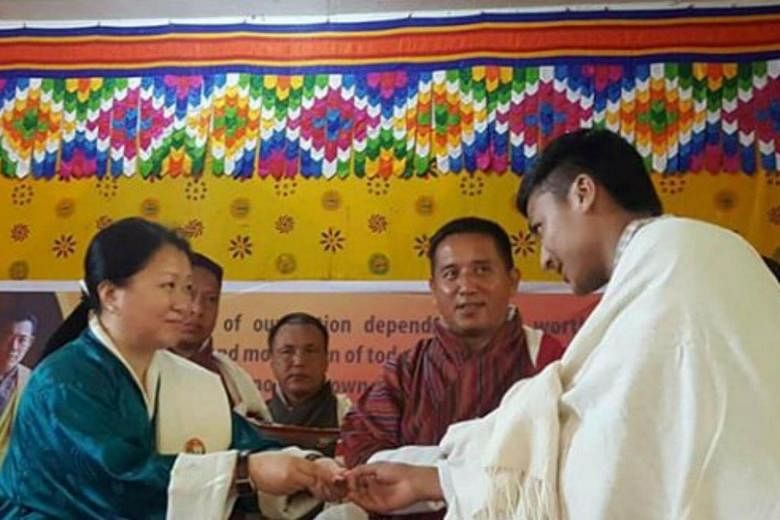THIMPHU (KUENSEL/ASIA NEWS NETWORK) - Parliamentary elections are nearing in Bhutan. Political parties have started to announce their candidates.
People's Democratic Party, Druk Phuensum Tshogpa (Bhutan Peace and Prosperity Party), and Bhutan Kuen-Nyam Party (BKP) have declared 20 candidates to date.
The mood will heat up in the coming months and more names will be declared. But what is conspicuously missing though is women candidates.
In a democracy, this is not a healthy sign.
Today, women comprise only 8.51 per cent of the 47-member National Assembly, the elected Lower House of Bhutan's new bicameral Parliament. The number of women members in the National Council reduced from 20 per cent in the first Parliament to eight in the second, including the eminent members.
Of the 128 aspiring National Council (the Upper House of Bhutan's Parliament) candidates who have registered with Election Commission of Bhutan (ECB) for the upcoming national election, only seven are women.
It appears that even though there is no outright gender discrimination in our society, there are subtle elements that play their part in discouraging women from joining politics.
Women think that our society is such that it does not trust women in leadership positions.
That is probably why the last local government elections did not see a lot of women participants. Party coordinators say that it is difficult to get women candidates.
Besides awareness and education, political parties should encourage more participation by women.
Some might argue that not having women representation in the Parliament and decision-making levels is not all that bad. But there are issues that women understand better than men and so will work towards ameliorating the situations.
A study carried out by ECB in 2014 found that political parties were not keen on promoting gender equality.
Allocating a quota for women was considered several times. But that is not the right way to encourage greater women participation in politics. The government even pledged to introduce a 20 per cent quota for women in all elected offices.
The issue was dropped following consultative meetings with stakeholders. Women themselves are not in favour of reservations. They feel it was more discriminatory than women not winning seats.
The same ECB study says that gender is not an issue among voters in terms of candidate choice. People look for credible, competent, qualified and good candidates. This is a significant finding. Political parties could, should, on their own, choose to reserve some seats for women to encourage greater women participation.
In a good democracy, women should enjoy more than just the right to vote. We need to create space and the right environment for women to participate in elections and get elected. There is a need to bring our women on board.
Kuensel is a member of The Straits Times media partner Asia News Network, an alliance of 23 news media entities.

